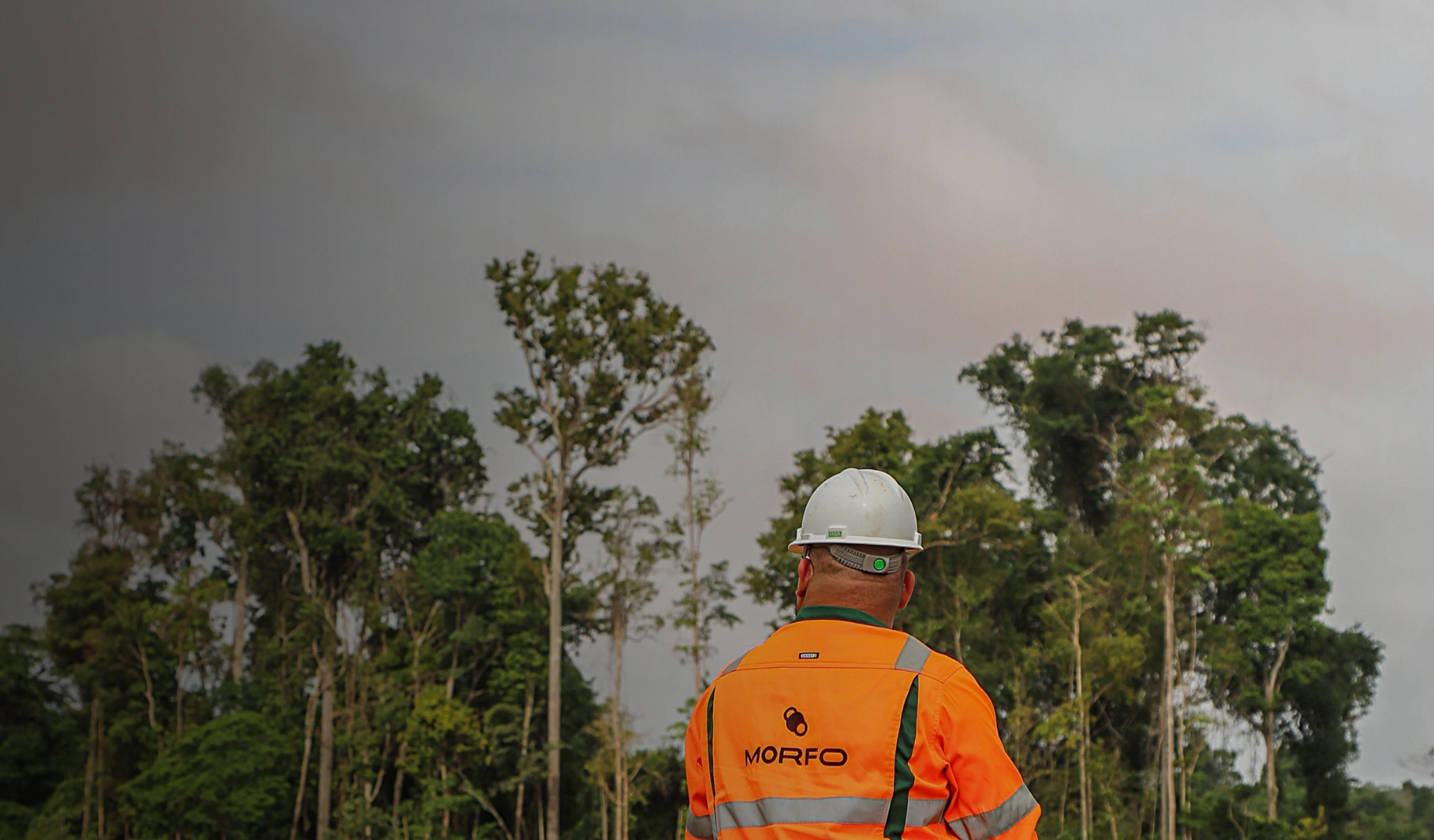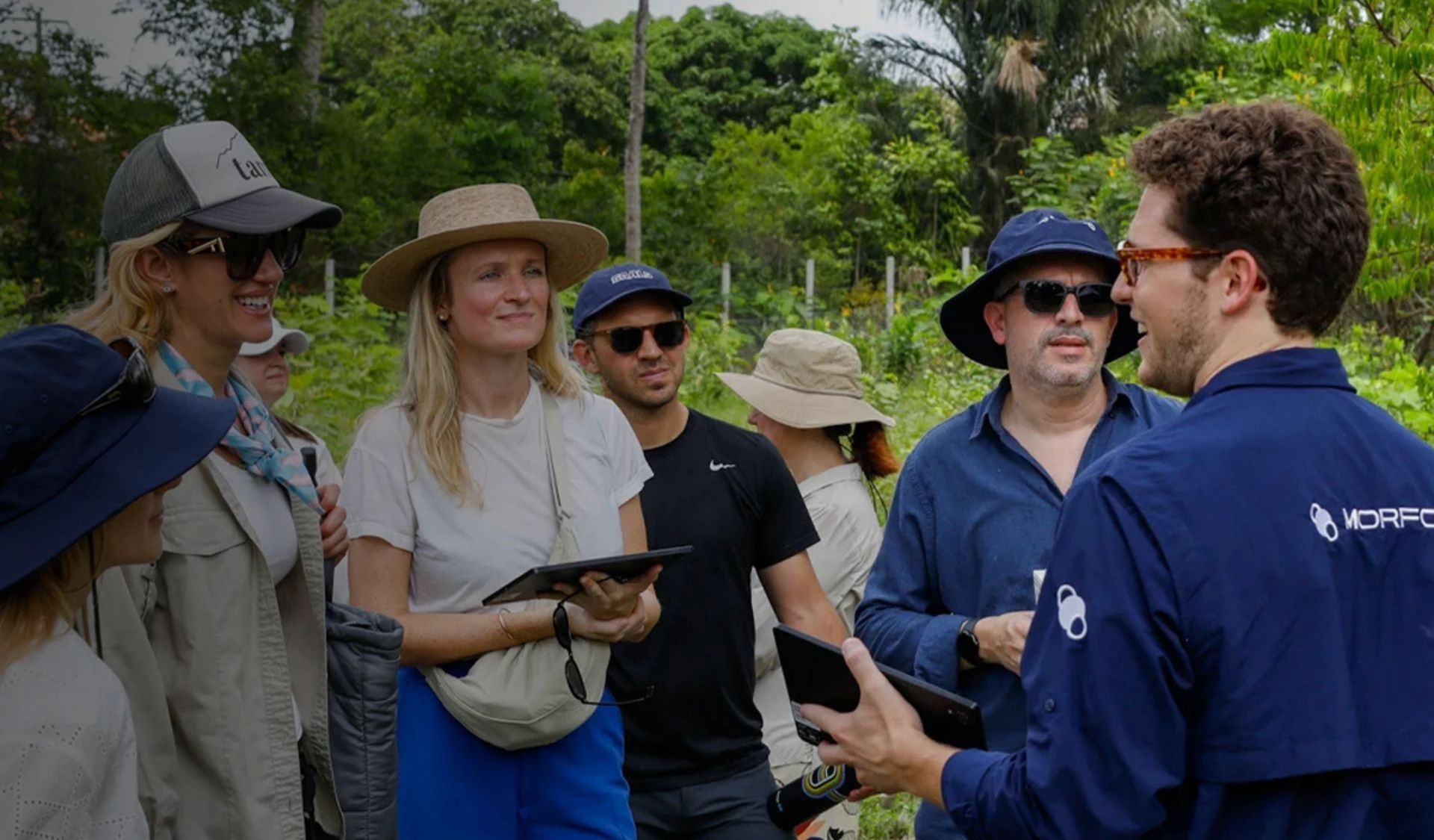Interplay between carbon markets, reforestation, and the future of tropical forests is more important than ever today. Alain Karsenty, a renowned economist with over 30 years of experience at CIRAD (Center for International Cooperation in Agricultural Research for Development), is a leading voice in this domain. In an exclusive interview featured in MORFO 's white paper on The Future of Reforestation Carbon Credits, Karsenty offers insights into his background, his views on carbon markets, and his thoughts on the future of tropical forests.
Can you introduce yourself?
I am an economist by training, and I have been working as a researcher at Cirad for over 30 years. I initially joined Cirad as a land specialist and began working on tropical forests as an economist, with a particular focus on forest analysis, climate, and biodiversity. Since 1997, I have been working on the subject of carbon markets, an area that has interested me for a long time.
What is Cirad’s (Center for International Cooperation in Agricultural Research for Development) mission?
Cirad has a mission of applied research with a focus on development. It is mandated to work with Southern countries and French Overseas Territories. Cirad covers agronomy in the broadest sense, including forestry, and is increasingly emphasizing environmental aspects and biodiversity. Although the majority of its funding comes from the French government, about 35% comes from contracts.
Over the years, you have become a reference in forest knowledge. How did this happen?
In a way, my journey began in 1993 when Cirad established a forestry department. This provided me with the opportunity to collaborate with foresters and ecologists for over two decades. What set this experience apart was my ability to maintain an economist's perspective while gaining valuable on-the-ground knowledge, especially regarding carbon.
Over the past two decades, you and other researchers have highlighted issues with additionality, non-permanence, and leakage in REDD+ projects. What are your thoughts on this? Why did it take so long to bring these issues to light?
Before discussing REDD+ projects, let's not forget that REDD+ is primarily a UN process aimed at states, with projects being instrumental in contributing to national-level "results," the only level authorized to receive payments or issue carbon credits. The idea of incentivizing Southern governments to reduce deforestation in their territories seems sensible. The challenges lie in decision-making and the ability to act. REDD+ proponents often have an incomplete understanding of political economy. Taking the example of the Democratic Republic of Congo (DRC), the government's capacity to intervene and reduce deforestation is very limited, especially in remote areas. In the context of failing states, political decisions are an unstable composition of vested interests of competing groups for power and associated economic benefits. In states with stronger institutions, such as Brazil or Indonesia, there are still compromises between political forces with divergent interests regarding deforestation. But if a political will emerges from the interplay of actors, it can translate into effective measures to reduce deforestation. However, all of this is reversible, as we've seen with the Bolsonaro episode.
As for REDD+ projects, they share the additionality and non-permanence issues of UN REDD+, adding the problem of national-level leakage (shifting pressures to other forests). Furthermore, they have minimal influence on public policies. These problems have been known to many researchers since the beginning of the REDD+ process. However, since these projects are welcome sources of funding for forest conservation and benefit a myriad of experts, researchers questioning the environmental integrity of carbon credits were often unheard of. But with the growing climate urgency, more people are raising questions about the effectiveness of these instruments, especially in the face of many companies' conspicuous communication about the carbon neutrality of their products achieved through carbon offsetting.
You also wrote, "The carbon market is fascinating in that, unlike a normal market where no one is happy to buy subpar goods, (some) sellers and (some) buyers don't care too much about the quality of the product." Can you explain this?
The interests of both parties are understandable: they aim to sell or acquire as many credits as possible while minimizing their efforts. For credit sellers, this is easy to understand. As for buyers, their primary goal is to present a green image to their customers and/or shareholders, often without scrutinizing the ecological value of the carbon credits purchased, which allow companies to avoid the costlier emissions reductions or defer them.
In general, there's no advantage in exposing the lack of quality and questioning the value of credits.
Do you have concerns that scandals in the carbon market or potential complexities in virtuous projects could hinder large-scale financing?
The simplified world we encounter through social media, for example, poses a major challenge. However, there is no alternative to education and training. I acknowledge the risk of "throwing the baby out with the bathwater," but I believe we must take this risk because good policies cannot be made with bad instruments. Many companies are already aware of the situation; they purchase carbon credits, suggesting that they do so in a contribution, not compensation, logic. However, they often find it convenient to maintain a certain degree of ambiguity. Therefore, we have no choice but to tell the truth and demystify this market, even if it leads to a transitional crisis.
Funding a new "certificates" system: Proving that a project has effectively prevented deforestation can be challenging. In this context, one could argue that funds are misused. However, it's not that simple because we know that preservation is essential. How should we approach this situation, and what are the solutions?
The problem is not in funding projects; I am always pleased when a good project receives funding. The problem lies in the instrument itself, which creates the illusion of compensation and misleads people into believing in carbon neutrality. We need alternative means and instruments to finance these projects. There are other mechanisms. We need to move away from the notion of compensation and towards contribution, which is not a new idea. We should fund projects that have context-appropriate impacts and consider the systemic aspects of interactions between natural and social processes. It doesn't make sense to think solely in terms of carbon without considering biodiversity, water quality, waste, benefit-sharing, and sustainable development alternatives built with local populations. We need impact-focused instruments in a contribution, not compensation, logic. Initiatives are emerging around "biodiversity certificates" (contribution). In this logic, instead of slicing ecosystem services, we could talk about "positive impact certificates" on socio-ecosystems. The real question is whether companies will embrace these concepts.
Who do you think should initiate this new system?
Governments can certainly initiate it, but I think it will be Verra or an external actor that takes the initiative by proposing a contribution-based system. Verra has already announced the upcoming launch of a "Nature credit" that will not be compensation but a contribution. Verra taking this path underscores the loss of credibility of compensation.
How can we direct funding towards "virtuous" projects?
Our task is to help the public, policymakers, and companies understand that compensation is not a viable solution; in fact, it can be demobilizing. The first step is to explain the challenges of carbon credits, despite their role in financing. We must convince stakeholders and consumers that compensation alone cannot solve the problem. As compensation loses credibility, alternative solutions may emerge. I hope it aligns with the concept of positive impact certificates I mentioned, but we'll see how far Verra's "Nature credits" go.
As far as reforestation is concerned, what should companies investing in plantation projects check?
Historically, the emphasis was primarily on maximizing biomass and production, often centered on issues such as the optimal timing for harvesting to promote faster regrowth (using the Faustmann criterion). However, today, our perspective has changed. We now take into account various factors, including species selection, their interaction with the soil, and their contributions on social, economic, and biodiversity levels. Research is no longer limited solely to productivity; it also encompasses aspects such as social acceptance and resilience, especially in the context of forest fires or mass die-offs. While we should not neglect wood for plastic substitution and construction, we must strive to find a balance in our approach.
More and more companies, like MORFO, are raising funds from private investors to accelerate reforestation research and capabilities. What are your thoughts on this?
I firmly believe that reforestation is a necessity. Therefore, this perspective on reforestation is of paramount importance. So if these companies are implementing this "smart" reforestation, which encompasses the various aspects discussed earlier, such as acceptability, biodiversity, or resilience, I support it.
In your opinion, what will tropical forests look like in 50 years?
We anticipate a landscape with fewer tropical forests and a reduced presence of primary forests. Trees will likely be smaller to adapt to a hotter and often drier climate, and forests may exhibit lower vitality, unfortunately offering fewer ecosystem services and carbon sequestration. Much will depend on the evolution of agriculture and livestock, major drivers of deforestation, and international trade - the infamous "imported deforestation." Despite initiatives like European and UK regulations on deforestation, which could inspire other countries like China, India, or Brazil, changes may be slow to come.
What are your hopes for the future?
"The pessimism of reason but the optimism of action." The prospects are not very encouraging, but we have no choice. We must act. We are in the realm of the inevitable, but there are degrees of inevitability. Therefore, we have no choice but to act to prevent the worst consequences, to the best of our abilities, wherever we are.





